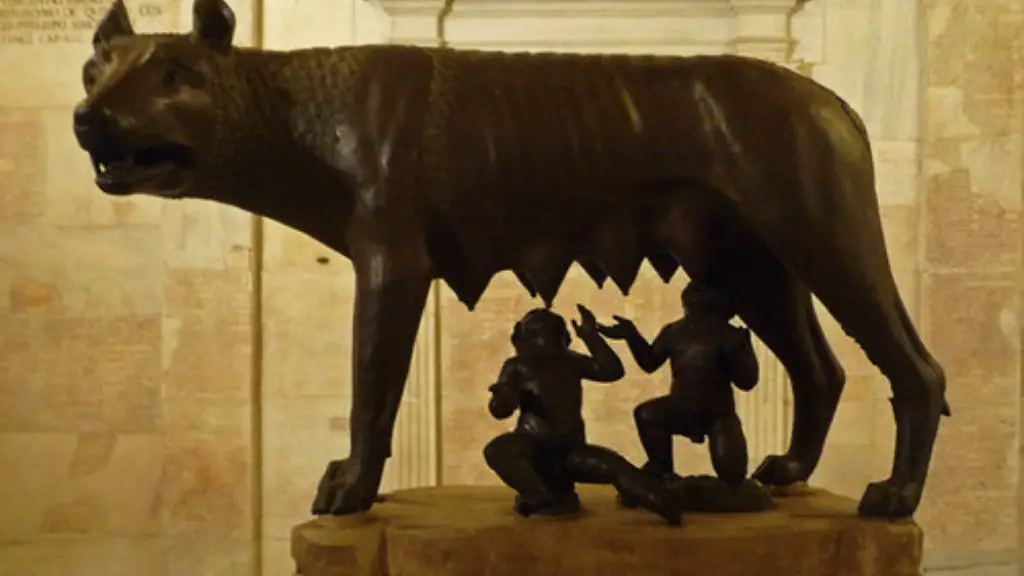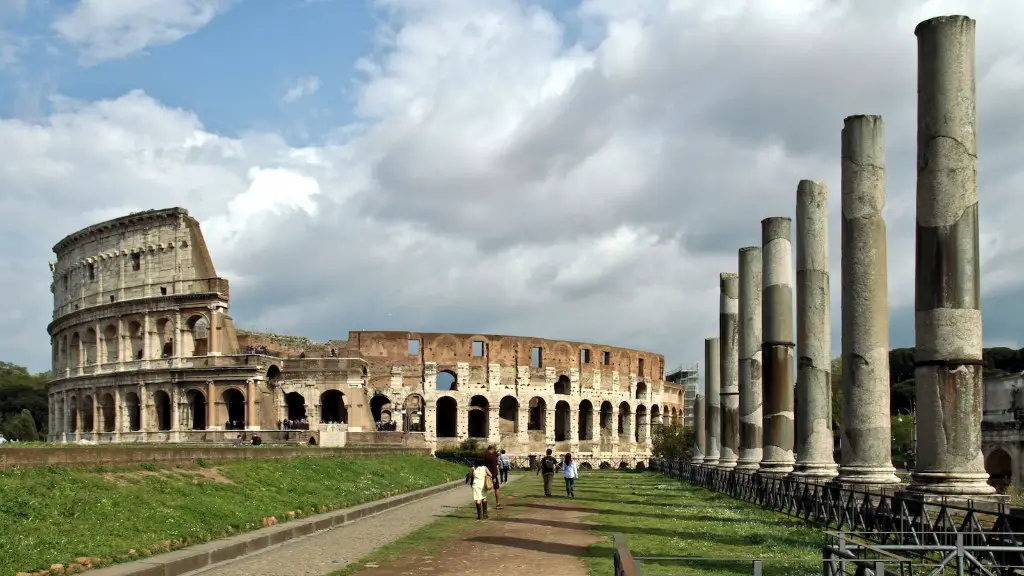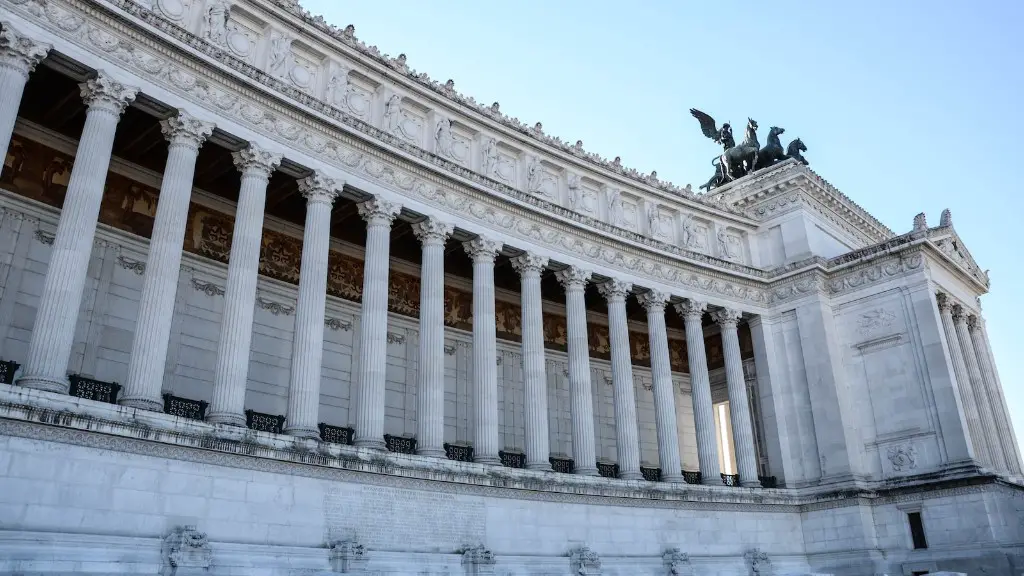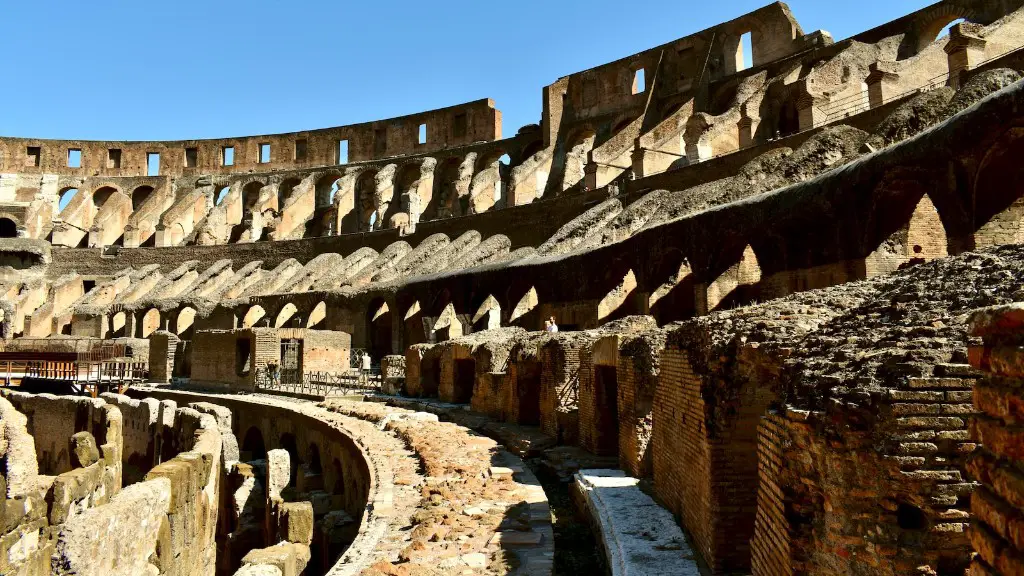The Formation of the Roman Republic
Ancient Rome was founded in 753 BCE by Romulus, who after killing his twin brother Remus, built the city of Rome on the banks of the Tiber River. However, the first government of Rome was not established until the Roman Republic arose in 509 BCE. It was the result of the overthrow of the Roman monarchy which had existed for nearly 250 years. This overthrow marked the beginning of a new era in Rome’s history and the start of a new system of government.
The Roman Republic was seen as a natural progression from the monarchy. It was practical and designed to improve the overall stability of the state. To maintain the stability, the Republic was structured in such a way that no single individual or group held too much power.
The first government of Rome was made up of three distinct branches of government, including legislation and justice, which was known as the Senate. The Senate had the power to pass laws and make laws applicable to all Roman citizens. This meant that the Senate had ultimate authority in matters related to the administration of justice.
The second branch of government, known as the executive, was made up of two consuls who held equal power and who served for a period of one year and one day. The consuls were responsible for the smooth running of the Republic, as well as for commanding the military forces. Finally, the third branch of government, known as the people’s assembly, was the legislative branch of government. The people’s assembly comprised of male citizens who had the power to elect magistrates, ratify laws, and declare war or peace.
The first government of Rome also had a number of religious offices. These offices included the appointment of Vestal Virgins, the performance of religious ceremonies, the observation of gods and goddesses, and the regulation of religious festivals. Religious offices also played an important role in the political life of the Republic as magistrates were endowed with a divine authority.
Even though the Republic was not perfect, it was the best form of government available at the time and served to provide Rome with stability in the face of outside influences. This stability enabled Rome to exist for centuries, and to form the foundation upon which the later Roman Empire was built.
The Roots of the Republic
The roots of the Republic of Rome can be traced back to the Etruscan civilization which existed prior to the establishment of the Republic. The Etruscans had a comparatively well-developed legal system, although it was very different from the system used by the Romans. This legal system was one of the main inspirations for the Roman Republic, as the Romans decided to adopt a similar system for their own state.
The Roman belief in the importance of law and in the rule of law is seen in many of the laws that were passed under the Republic. Examples include their right to appeal to a jury, to sue each other, to vote in public meetings, to own property, and to be free from arbitrary punishment. All these rights and laws formed the basis of the Roman Republic which served as a model for many future governments.
Furthermore, in a society that believed in the importance of order and justice, it was unsurprising that the Romans chose a republic as the form of government for their state. This is because a republic was seen as being in line with the values of the Roman people, who placed utmost importance on stability and justice. This was necessary in order for the state to protect its citizens, their property, and their rights.
It is clear that the first government of Rome was rooted in the Etruscan legal system, as well as in the values held by the Roman people. The structure of this government was designed to provide stability and order, while ensuring the protection of its citizens. This structure enabled the Roman Republic to last for centuries and to serve as a foundation for the more successful Roman Empire.
Contributions of the Republic
The Republic provided Rome with a number of important contributions to its future empire and stability. Firstly, the Republic established the ideal of a unified state governed by laws that all citizens had to abide by. This gave the citizens of Rome a sense of unity and belonging, and encouraged civic pride, particularly in the education and assessment of Roman citizens.
The Republic also provided Rome with a strong military as consuls were elected for the purpose of commanding the armies. This military developed over time and eventually led to the establishment of the Roman Empire, which was a much stronger version of the Republic. Additionally, the Republic provided an alternative political system to the monarchy and served as an example to other states of how a republic could work.
Finally, the Republic also provided an example of how democracy could be used to maintain order and justice, without the need for a strong leader or an oppressive government. This is why many modern democracies have adopted certain aspects of the Roman Republic such as voting rights and the rule of law, as well as the separation of powers.
The Fall of the Republic
Despite the many contributions of the Republic, it eventually fell in 27 BCE when the first emperor, Augustus, declared himself emperor of the Roman Empire. This downfall marked the end of the Republic, as well as the beginning of a new era in Rome’s history. The reasons for the fall of the Republic are widely debated, but many scholars agree that it was the result of the ambition of powerful individuals and the inability of the Republic to maintain its stability.
The main cause of the fall of the Republic was the power struggle between two powerful figures: Julius Caesar and Pompey. Both men sought to become the sole ruler of Rome, and their rivalry eventually plunged the Republic into chaos. This chaos prevented the government from functioning properly, and ultimately resulted in the downfall of the Republic.
The fall of the Republic was a significant event in the history of Rome, as it marked the end of the Republic and the start of rule by a single individual. This new form of government was known as the Empire, and with it came a period of immense prosperity. The lessons taken away from the Republic, however, have continued to shape modern democracies around the world.
Legacy of the Republic
The legacy of the Republic is still present today in the form of democratic values, the rule of law, and respect for individual rights. These values have been adopted by modern democracies, and they continue to be applied by citizens, governments, and institutions around the world. The Republic of Rome also provided the foundation upon which the more successful Roman Empire was built and served as an example for many future states.
The Republic of Rome is an important part of the history of Rome as it provided the basis for a stable and prosperous state. The formation of the Republic also served as a major milestone in the history of democracy, and its principles continue to be upheld in many countries around the world. Indeed, the Republic of Rome has provided a lasting legacy and continues to be an example of how a successful state can be formed.
Reflections on the Republic
It is clear that the Republic of Rome provided the citizens of Rome with a much needed sense of stability and order. This was necessary for the protection of their rights and property, as well as for maintaining a strong and prosperous state. Additionally, the Republic provided an attractive alternative to the oppressive monarchy, and it inspired many states to adopt some of its principles and values.
The many contributions made by the Republic of Rome are also worth acknowledging, as it served as an example of how a successful government could be established without the need for a strong leader. This example has been followed by many modern democracies, and it is these democratic values that continue to be applied in many countries around the world.
Finally, despite the many successes of the Republic, it eventually fell due to the power struggles of prominent figures. This downfall marked the end of the Republic, and the start of a new era in Rome’s history. Nevertheless, the Republic of Rome provided a lasting legacy and its principles continue to be applied to this day.





